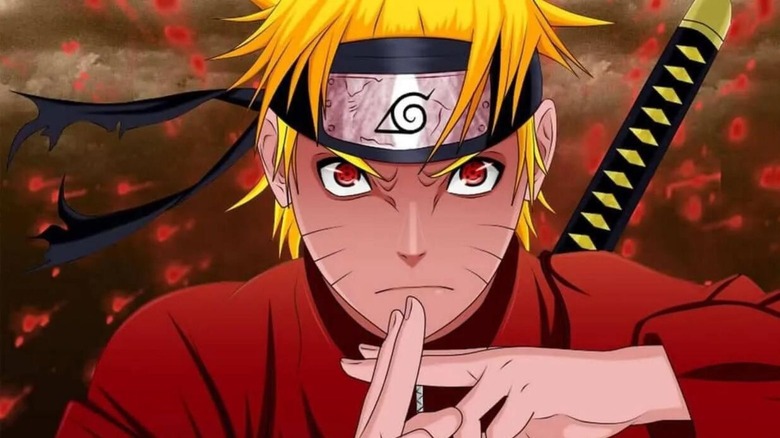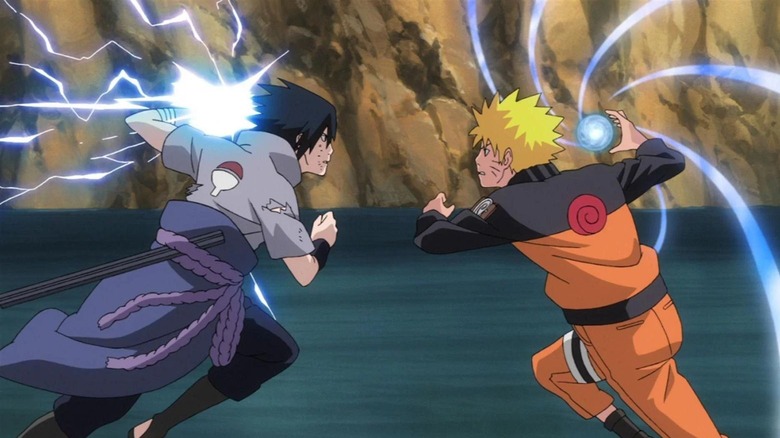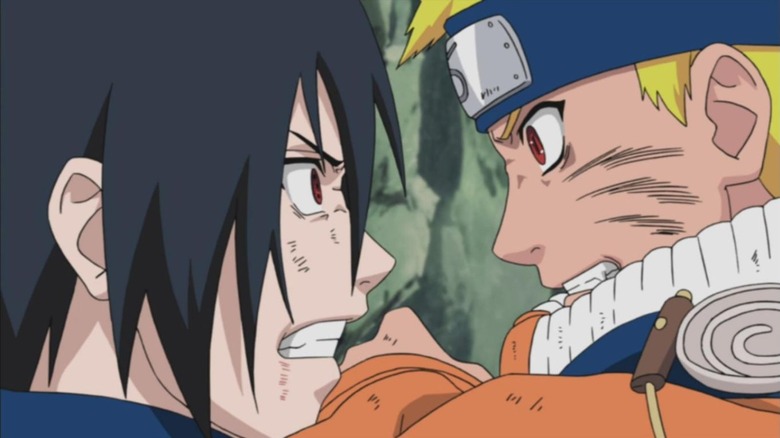Masashi Kishimoto Has A Theory About Naruto's Success Outside Of Japan
Having sold 250 million copies worldwide in over 40 countries, "Naruto" is the most popular manga series in the world. There are many reasons why Naruto is an enduring character: he's an endearing knucklehead who expertly balances situations with equal parts humor and heart. The manga has given birth to an entire anime franchise and unimaginably influenced the shonen genre — it has intense action sequences that ensure your heart leaps out of your chest, it has a roster of characters that every viewer can find themselves in, and of course, it does help that everyone loves ninjas. "Naruto" was an immense success not just in its home country of Japan, where it sold 153 of 250 million copies — but also in the rest of the world, where the anime series delighted audiences.
For Masashi Kishimoto, the visionary who created Naruto's universe, its success has a straightforward explanation. The character has tragedy embedded in his past, and his story helped usher in a feeling that sometimes heroes and villains can both be grey characters. Naruto learned through his experiences. He looked for unconventional solutions to his problems and trusted his problem-solving ability to escape tricky situations. And as fans like to say it: he's a knucklehead. He's clueless and imperfect, and we love him for it.
'Perfect heroes are cool, but ...'
In an interview with the Los Angeles Times, "Naruto" creator Masashi Kishimoto shared his theory about the anime's success. The manga veteran discussed how Naruto's capacity to be an imperfect hero makes fans empathize with him. Perfect heroes are great and surely must exist, but it is the ones that accept they're flawed and work towards bettering themselves that people see themselves in. Naruto recognizes that he isn't the strongest among his peers, and works toward changing that.
"It's rather awkward to talk about what makes Naruto appealing to audiences, but I think his being a knucklehead gives him an appeal," shared Kishimoto in the interview translated by Hiromi Psaila.
Here's Kishimoto's full quote from the interview:
"Perfect heroes are cool, but no one can really empathize or identify with them. Naruto often makes blunders, and he has weaknesses. Naruto feels inferior to his peers, but he hates to be a loser. Although he doesn't think about it too much, he knows he hates to lose, and we all know what that feels like. I think readers see themselves in Naruto, and that's what appeals to them: They can empathize with him and his weaknesses."
Kishimoto didn't have an international audience in mind
When the artist began working on "Naruto," Kishimoto didn't assume an international audience would love and appreciate the manga as they did. The "Naruto" creator does, however, believe that his work was accepted overseas since the people that influenced him had already been successful elsewhere.
"I didn't think much about foreign readers when I began 'Naruto,' but I knew that many of the artists who influenced me had already been accepted overseas," he continued.
"All the people I was influenced by have been very successful in other countries, which may be why it was easier for my work to be accepted there. 'Naruto' owes a lot to those artists who won acceptance and popularity overseas."
Kishimoto is right that people's love for Naruto stems from him being a knucklehead. He had a difficult childhood and was shunned by everyone, which contributed to his need for attention. Naruto always accepted his weaknesses which helped him become a relentless ninja who refuses to give up — and always strives to do his best. Naruto illustrated the character growth fans yearn to see in their heroes, as well as themselves.


